About St. Luke’s Quakertown Campus
St. Luke’s Quakertown Campus is a satellite location within the St. Luke’s network that provides comprehensive medical and mental health care to people in Quakertown, Pennsylvania. The behavioral health services provided at this location are not unique to the St. Luke’s network; however, this facility prioritizes care for adults facing acute behavioral issues, including co-occurring disorders, which can include substance use disorders (SUDs).
Quakertown has plenty of nearby activities like the downtown district, that can be a great complement to the services provided at St. Luke’s. This includes the adjacent Memorial Park, which has plenty of walking paths and green spaces. Similarly, Nockamixon State Park is full of nature trails and water activities.
Inpatient Support
The Quakertown campus is just one of several St. Luke’s locations across Pennsylvania. The Quakertown campus houses an inpatient behavioral health program for people in crisis. This includes medical stabilization if needed, along with psychiatric assessment and the development of an individual treatment plan.
Continuing Care
While the Quakertown location isn’t the only one that offers outpatient services, you can access them here. The outpatient program can include a variety of services from counseling and further assessments to medication-assisted treatment (MAT) programs. If you need medication management, that’s also available here.
Although not specifically offered here, specialty groups such as veterans and children or adolescents in need of behavioral health support can receive care at other St. Luke’s locations. Likewise, integrated care of medical and psychiatric services can be provided.
St. Luke’s accepts a variety of health insurance plans, Medicaid and Medicare, and can provide assistance to patients who need help with payment plans or coverage questions.
Latest Reviews
Thank you, St. Luke’s Reputation Management Team
Thank you, St. Luke’s Reputation Management Team
We’re very sorry to hear about your brother-in-law and understand how distressing this is for your family. We take concerns about patient safety and discharge decisions seriously. For privacy and to review this situation further, please contact us at mystlukes@sluhn.org so we can look into the details and address your concerns.
Thank you, St. Luke’s Reputation Management Team
Rehab Score
Gallery
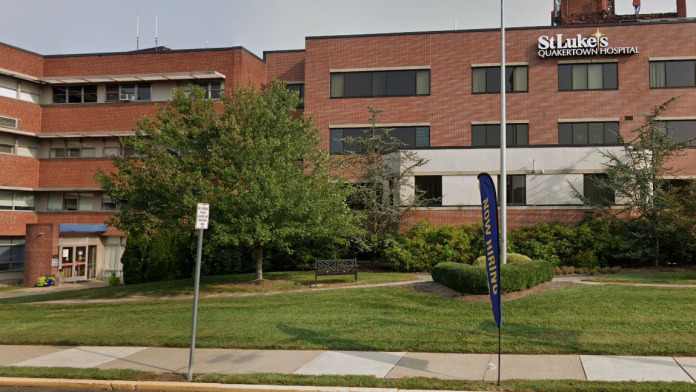
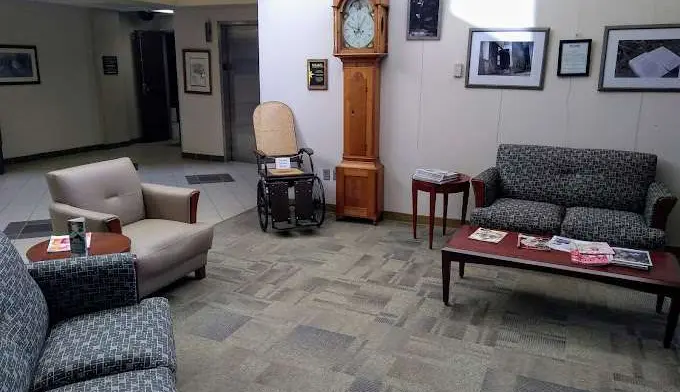
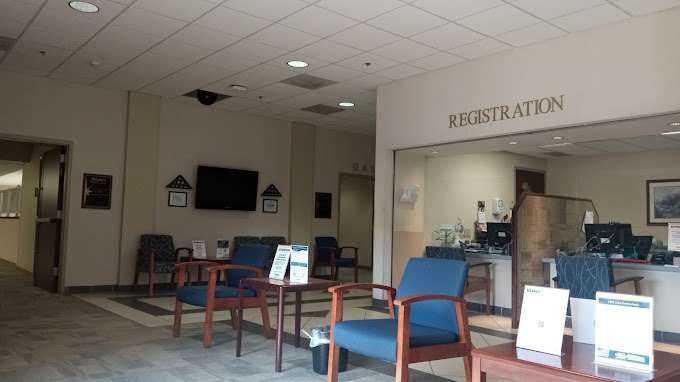
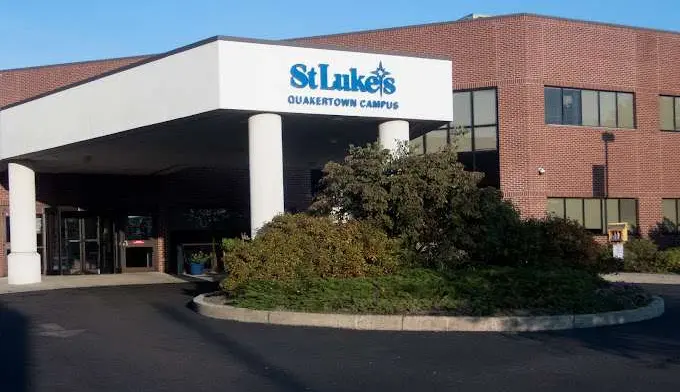
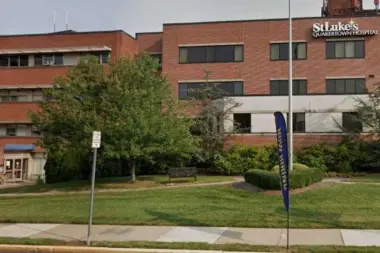
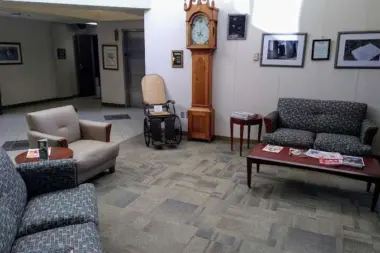
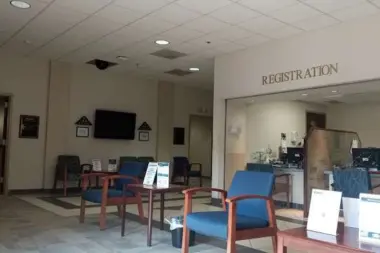
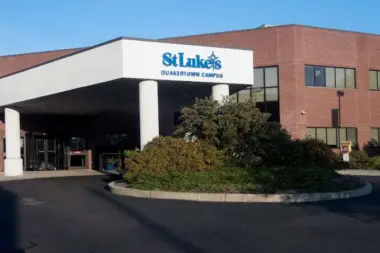
Other Forms of Payment
Private insurance refers to any kind of healthcare coverage that isn't from the state or federal government. This includes individual and family plans offered by an employer or purchased from the Insurance Marketplace. Every plan will have different requirements and out of pocket costs so be sure to get the full details before you start treatment.
Self-pay involves paying for treatment out of your own pocket. You can use savings or credit, get a personal loan, or receive help from family and friends to fund your treatment. If you don't have insurance or your insurance plan doesn't cover a specific program, self-pay can help ensure you still get the care you need.
Financial aid can take many forms. Centers may have grants or scholarships available to clients who meet eligibility requirements. Programs that receive SAMHSA grants may have financial aid available for those who need treatment as well. Grants and scholarships can help you pai for treatment without having to repay.
Medicare is a federal program that provides health insurance for those 65 and older. It also serves people under 65 with chronic and disabling health challenges. To use Medicare for addiction treatment you need to find a program that accepts Medicare and is in network with your plan. Out of pocket costs and preauthorization requirements vary, so always check with your provider.
Medicaid is a state based program that helps lower-income individuals and families pay for healthcare. Medicaid covers addiction treatment so those enrolled can use their coverage to pay for rehab. When a program accepts Medicaid the client often pays very little or nothing out of their own pocket.
Military members, veterans, and eligible dependents have access to specific insurance programs that help them get the care they need. TRICARE and VA insurance can help you access low cost or no cost addiction and mental health treatment. Programs that accept military insurance often have targeted treatment focused on the unique challenges military members, veterans, and their families face.
Addiction Treatments
Levels of Care
Residential treatment programs are those that offer housing and meals in addition to substance abuse treatment. Rehab facilities that offer residential treatment allow patients to focus solely on recovery, in an environment totally separate from their lives. Some rehab centers specialize in short-term residential treatment (a few days to a week or two), while others solely provide treatment on a long-term basis (several weeks to months). Some offer both, and tailor treatment to the patient's individual requirements.
Because the severity of withdrawal symptoms can fluctuate, constant monitoring under 24-hour clinical care in Pennsylvania is recommended for early recovery. As you undergo detox, medical staff will supervise your health and ensure severe symptoms do not develop or threaten your life. Professional counselors will also be available to treat mental and emotional health needs.
A medical detox is the safest way to wean your body off drugs and/or alcohol in an inpatient setting. When detoxing from addictive substances, the physical and psychological side effects of withdrawal can cause mood swings, anxiety, nausea, or flu-like symptoms. In medically assisted detox, a team of medical professionals are on hand 24/7 to help alleviate potential withdrawal symptoms, administer medications to alleviate withdrawal symptoms, and ultimately keep you safe and comfortable throughout this process.
Treatments
Many of those suffering from addiction also suffer from mental or emotional illnesses like schizophrenia, bipolar disorder, depression, or anxiety disorders. Rehab and other substance abuse facilities treating those with a dual diagnosis or co-occurring disorder administer psychiatric treatment to address the person's mental health issue in addition to drug and alcohol rehabilitation.
Mental health rehabs focus on helping individuals recover from mental illnesses like bipolar disorder, clinical depression, anxiety disorders, schizophrenia, and more. Mental health professionals at these facilities are trained to understand and treat mental health issues, both in individual and group settings.
Programs
Adult rehab programs include therapies tailored to each client's specific needs, goals, and recovery progress. They are tailored to the specific challenges adult clients may face, including family and work pressures and commitments. From inpatient and residential treatment to various levels of outpatient services, there are many options available. Some facilities also help adults work through co-occurring conditions, like anxiety, that can accompany addiction.
Young adulthood can be an exciting, yet difficult, time of transition. Individuals in their late teens to mid-20s face unique stressors related to school, jobs, families, and social circles, which can lead to a rise in substance use. Rehab centers with dedicated young adult programs will include activities and amenities that cater to this age group, with an emphasis on specialized counseling, peer socialization, and ongoing aftercare.
Clinical Services
Cognitive Behavioral Therapy (CBT) is a therapy modality that focuses on the relationship between one's thoughts, feelings, and behaviors. It is used to establish and allow for healthy responses to thoughts and feelings (instead of unhealthy responses, like using drugs or alcohol). CBT has been proven effective for recovering addicts of all kinds, and is used to strengthen a patient's own self-awareness and ability to self-regulate. CBT allows individuals to monitor their own emotional state, become more adept at communicating with others, and manage stress without needing to engage in substance abuse.
Group therapy is any therapeutic work that happens in a group (not one-on-one). There are a number of different group therapy modalities, including support groups, experiential therapy, psycho-education, and more. Group therapy involves treatment as well as processing interaction between group members.
In individual therapy, a patient meets one-on-one with a trained psychologist or counselor. Therapy is a pivotal part of effective substance abuse treatment, as it often covers root causes of addiction, including challenges faced by the patient in their social, family, and work/school life.
Staff
Richard Anderson
President & CEO
Francine Botek
Senior VP Finance
Patrick Bower
VP Development
Chad Brisendine
VP CIO
Joel Fagerstrom
Executive VP COO
Dennis Pfleiger
President
Ashley Swope, MSN, RN
Chief Nursing Officer
Kenneth Szydlow
VP CMO
Scott Wolfe
CFO
Contact Information
1021 Park Avenue
Quakertown PA, 18951